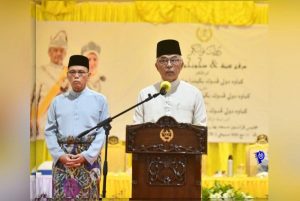
LETTERS – The Covid-19 pandemic has taught us, other than the obvious healthcare preparedness and the importance of research and development (R&D) in health, how we view work.
In 2008, Bank Negara Malaysia posited that the country’s workforce was overworked and underpaid compared with our regional peers. This is not surprising.
Many entry- and mid-level workers deemed so too, but there is a perception gap for high-level executives who think, of course, that their organisations could be more productive.
Productivity is the mantra. Churn out more and work, to feed the consumerism beast who seem to always hunger for more. We work more so we can afford to consume more, so that is expected right?
Just that, it is not. The average salary for the entry level worker in Malaysia has not gone up for the last decade, with graduates earning between RM1,000 and RM1,500.
On compensation for employees, a statistical measure used for wages paid to employees, it is only 35.9 per cent of our gross domestic product (GDP).
Compare that with Singapore’s 40.2 per cent (which has higher GDP and less workforce than ours) and Germany’s 59.4 per cent.
And, about 65 per cent of Malaysians are under employment. Hence, labour policies matter, especially one that prioritises a healthy and happy workforce.
Delving into the 12th Malaysia Plan, the work-life balance is only discussed in terms of flexible working hours.
Most of us know that during the pandemic, when working from home is the new norm, the blurred lines between work and personal hours often cause unnecessary stress and burnouts.
Virtual meetings do take its toll on employees’ wellbeing. In this sense, the balance of work and life diminishes as life is relegated under work while it should be the other way around.
The New York Times has published an excellent article that sheds more light on this matter.
The United States is experiencing a phenomenon popularly called “the Great Resignation”, where employees, amidst the pandemic, have taken a step back to rethink their view on work.
This mass exit from the labour force could bode ill to the US economy when many employers are facing labour shortages.
Without a work-life balance, there is a cost to our healthcare system and society. Malaysians generally live longer but not necessarily healthily.
This is not a call for a mass resignation but rather a shift of mindset of how we should view work.
There are systemic and structural economic issues like low compensation to employees and inequality needs to be addressed boldly by the policymakers.
At the same time, employers should have better strategies in managing their employees and the work they do. Comparing old times and recent times are usually unhelpful.
Productivity should not mainly be measured via hours of work or deadlines met, but how much work could be done effectively and without waste of resources or shelved work.
Recently, there is an ongoing campaign of working abroad for better compensation — and comfortable lives too. Who could have blamed them? If someone does not appreciate us, others will.
SOURCE: MS Azhariy (NST)








